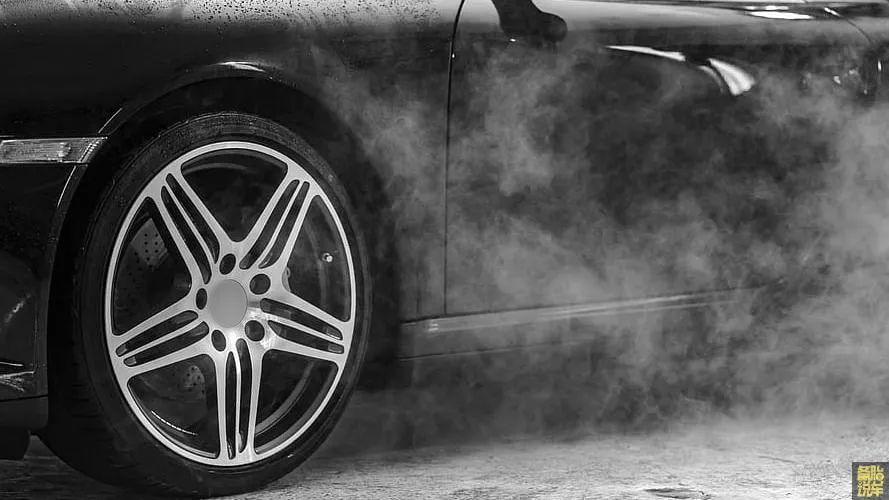Have you ever experienced leaving the engine running while parked at night because your car is equipped with keyless entry and you forgot to turn off the engine, leaving your car idling all night? Don’t worry, although this is not a common situation, your car may be stronger than you think. Today, let’s talk about leaving the engine running while parked, so that you can have a more comprehensive understanding of your car’s “stamina.”
1. Will the engine be damaged if it idles all night?

Many car owners may worry that idling for a long time will damage the car. In fact, this worry is unnecessary. The engine, as the core component of the car, is far more sturdy than you think.
Engine durability tests tell you the answer
According to relevant research, engines must undergo rigorous durability tests before leaving the factory. For example, the test time for a passenger car engine is usually not less than 500 hours, and the test items include extreme operating conditions such as full speed and full load operation, thermal cycling, and overspeeding.
- When operating at full speed and full load, the engine must continuously operate at a high speed of 6,500 rpm for 200 hours
- The thermal cycling test requires switching between idle speed, 4,000 rpm, and 6,500 rpm 1,200 times, for a total of 200 hours
In contrast, idling all night is a piece of cake for the engine. So you don’t need to worry about it.
2. Does idling increase carbon deposits?
Some car owners may worry that carbon deposits are already serious during daytime stop-and-go driving in the city, and if the engine idles all night, won’t the carbon deposits increase even more? In fact, the formation of carbon deposits is unavoidable, but the amount of carbon deposits during idling is not as exaggerated as you think.
How are carbon deposits formed?
Carbon deposits are mainly formed due to incomplete combustion of substances such as aromatics in the fuel during combustion. Whether it is idling or normal driving, as long as the engine is running, carbon deposits will be formed, it is just a matter of the amount.
Less carbon deposits during idling?
Studies have also found that under constant speed conditions, such as idle speed, cruise control, and stable driving, the engine speed fluctuates little, and carbon deposits are relatively less likely to form. On the contrary, carbon deposits will be more serious when the vehicle speed changes frequently. Therefore, leaving the engine idling all night while parked will have minimal effect on carbon deposits.
3. What is the effect of idling on the air in the car?
Compared to engine and carbon deposits, you should be more concerned about the impact of idling on the air inside the car. Because when a fuel-powered vehicle is idling, it produces a large amount of harmful gases, which pose a threat to human health.
Harmful gases at idle speed
When a motor vehicle is idling, the engine is in a state of lean combustion with a high concentration of oxygen. At this time, the concentration of hydrocarbons and carbon monoxide emitted is higher than in other operating conditions. These harmful gases are not only extremely harmful to the human body, but also have a much higher concentration than usual.
How can you avoid air pollution in the car?
If you do accidentally leave the engine idling all night, the first thing you should do when you notice it the next day is to open the windows and turn on the outside air circulation, setting the wind to the maximum, to quickly get rid of the harmful gases inside the car. Remember not to get into the car and start the engine directly, so as to avoid feeling unwell due to inhaling too much harmful gas.
4. How much fuel is wasted when the engine is left running while parked?

The most direct loss of leaving the engine running all night is the fuel cost. Take a 1.5L displacement family car as an example, the fuel consumption at idle for 1 hour is about 2.4 liters. Assuming the local price of gasoline is 1.1 US dollars per liter, then idling for 10 hours will consume 24 liters of fuel, and the fuel cost is about 26.4 US dollars.
Fuel consumption varies by vehicle type
Of course, fuel consumption varies from model to model, affected by a variety of factors such as displacement, age, and driving habits. But generally speaking, the fuel cost of leaving the engine running overnight is usually in the range of tens to hundreds of dollars. If you drive a luxury or high-performance car, the fuel cost may be even higher.
5. Questions about car fuel consumption
When it comes to fuel consumption, many car owners are concerned about how to save fuel. In recent years, with the increasing environmental protection requirements, fuel consumption standards for cars have become more and more stringent. It is rumored on the Internet that after 2026, the fuel consumption of fuel vehicles cannot exceed 3.3 liters/100 kilometers, otherwise they will be banned from sale. Is this true?
The truth behind fuel consumption standards
At present, the rumors about the fuel consumption standard for fuel vehicles in 2026 have not been officially confirmed. However, judging from the development trend of the global automotive industry, reducing fuel consumption and improving energy efficiency is the general trend. In the future, fuel vehicles may face stricter fuel consumption standards and may even be replaced by new energy vehicles.
Can kinetic energy recovery save fuel?
Some car owners may wonder if a kinetic energy recovery system can save fuel in the same way as an electric vehicle’s kinetic energy recovery system saves electricity. Theoretically, a kinetic energy recovery system can indeed recover the energy wasted during deceleration or braking and convert it into electricity for storage, thereby reducing fuel consumption to a certain extent. However, the exact amount of fuel saved needs to be comprehensively assessed based on various factors such as the model and driving habits.
Conclusion
Leaving the engine running while parked does not cause much harm to the engine, but it wastes fuel and produces harmful gases. Therefore, car owners should try to remember to turn off the engine when parking to avoid unnecessary losses. At the same time, it is also a compulsory course for every car owner to pay attention to fuel consumption standards and learn about fuel-saving techniques. We hope that this article can provide you with some useful references to make your car more worry-free, effortless and save money!
